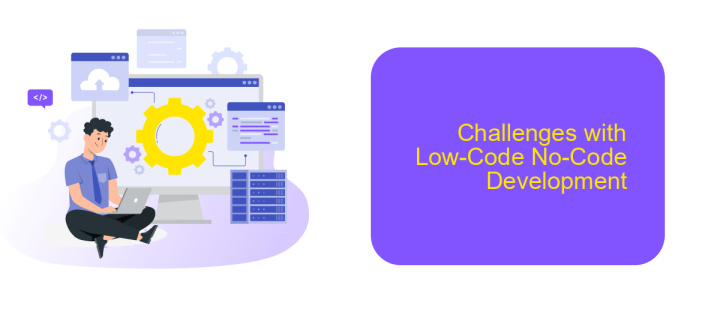Low-Code No-Code Development Services
Low-Code No-Code Development Services are revolutionizing the way businesses approach software creation. By enabling users to design applications with minimal to no coding, these platforms empower non-technical professionals to contribute to digital transformation. This democratization of app development accelerates innovation, reduces costs, and bridges the gap between business needs and IT capabilities.
Introduction to Low-Code No-Code Development Services
Low-Code No-Code Development Services are revolutionizing the way businesses approach software development. These platforms allow users to create applications with minimal hand-coding, reducing the need for extensive programming knowledge and accelerating the development process.
- Ease of Use: Drag-and-drop interfaces and visual builders simplify the creation process.
- Cost-Effective: Reduces the need for hiring specialized developers.
- Speed: Rapid development and deployment of applications.
- Flexibility: Easily adaptable to changing business needs.
- Integration: Seamless integration with existing systems through services like ApiX-Drive.
By leveraging Low-Code No-Code Development Services, organizations can empower non-technical staff to build and modify applications, enhancing productivity and innovation. Tools like ApiX-Drive facilitate integration with various platforms, ensuring smooth data flow and operational efficiency. This democratizes software development, making it accessible to a broader range of users and fostering a culture of continuous improvement.
Benefits of Low-Code No-Code Development

Low-Code No-Code development empowers businesses to accelerate their application development processes by enabling non-technical users to create and modify applications with minimal coding. This approach significantly reduces the time and cost associated with traditional software development, allowing organizations to respond more quickly to market demands and innovate faster. Additionally, it democratizes the development process, enabling a wider range of employees to contribute to digital transformation efforts.
Another key benefit is the ease of integration with existing systems and services. Platforms like ApiX-Drive facilitate seamless integration, allowing users to connect various applications and automate workflows without extensive technical knowledge. This capability enhances operational efficiency and ensures that different software tools work harmoniously together. Overall, Low-Code No-Code development not only streamlines the creation of applications but also optimizes business processes through effective integrations.
Use Cases for Low-Code No-Code Development

Low-code and no-code development platforms are revolutionizing the way businesses approach software creation. These platforms empower users with little to no programming experience to build applications, automate workflows, and integrate various services seamlessly. This democratization of development is particularly beneficial for small to medium-sized enterprises (SMEs) and departments within larger organizations.
- Business Process Automation: Streamline repetitive tasks and workflows by creating automated processes without extensive coding.
- Custom Application Development: Quickly develop tailored applications to meet specific business needs, reducing time-to-market.
- Data Integration: Easily connect disparate systems and data sources using tools like ApiX-Drive, which simplifies API integrations.
- Prototyping and MVPs: Rapidly build prototypes and minimum viable products to test ideas and gather user feedback.
- Citizen Development: Enable non-technical staff to create and manage applications, reducing dependency on IT departments.
These use cases illustrate the versatility and accessibility of low-code and no-code platforms. By leveraging these tools, organizations can enhance their agility, reduce development costs, and foster innovation across teams. As a result, even those without a technical background can contribute to digital transformation initiatives, driving business growth and efficiency.
Challenges with Low-Code No-Code Development

Low-code and no-code development platforms offer significant advantages, but they also come with their own set of challenges. One of the primary concerns is the limited customization options available. These platforms often provide pre-built templates and modules, which can restrict the flexibility needed for complex projects.
Another challenge is the potential for security vulnerabilities. Since low-code and no-code platforms are designed for ease of use, they may not always adhere to the stringent security protocols that custom-coded solutions can offer. As a result, sensitive data might be at risk.
- Limited customization options
- Security vulnerabilities
- Integration difficulties
- Scalability issues
Integration difficulties can also arise, especially when connecting different systems and services. Tools like ApiX-Drive can help mitigate this issue by offering seamless integration capabilities, but not all platforms are compatible with such services. Finally, scalability can be a concern, as low-code and no-code solutions may not always handle increased loads efficiently.


Future of Low-Code No-Code Development
The future of Low-Code No-Code development is poised to revolutionize the way businesses approach software creation. As these platforms continue to evolve, they will empower more individuals, regardless of their technical background, to create sophisticated applications. This democratization of app development will lead to faster innovation cycles, reduced costs, and a significant decrease in the time required to bring new ideas to market. Additionally, the integration of AI and machine learning into Low-Code No-Code platforms will further enhance their capabilities, enabling even more complex and intelligent applications to be built with minimal effort.
Another key trend in the future of Low-Code No-Code development is the increasing importance of seamless integration with other tools and services. Platforms like ApiX-Drive are at the forefront of this movement, offering robust solutions for integrating various applications and automating workflows. By simplifying the process of connecting disparate systems, these services will allow businesses to create more cohesive and efficient digital ecosystems. As a result, organizations will be able to streamline operations, improve data accuracy, and enhance overall productivity, making Low-Code No-Code development an indispensable part of the modern business landscape.
FAQ
What is Low-Code No-Code development?
Who can benefit from Low-Code No-Code platforms?
Can Low-Code No-Code platforms handle complex integrations?
How secure are applications built using Low-Code No-Code platforms?
What types of applications can be built using Low-Code No-Code platforms?
Apix-Drive is a universal tool that will quickly streamline any workflow, freeing you from routine and possible financial losses. Try ApiX-Drive in action and see how useful it is for you personally. In the meantime, when you are setting up connections between systems, think about where you are investing your free time, because now you will have much more of it.

